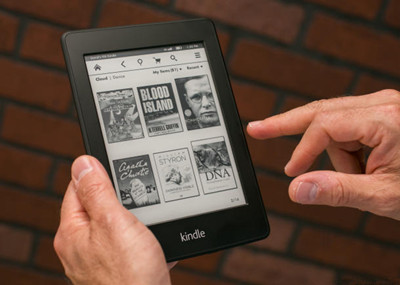When you curl up in bed, consider reading an old-fashioned printed book rather than a smartphone or tablet.
當你蜷在被窩里,想著讀一本傳統(tǒng)紙質(zhì)書而非智能手機或平板電腦,
Your sleep should be deeper and more restful.
那你的睡眠就會更深、更安寧。
That's the finding of a study in the Proceedings of the National Academy of Sciences.
這是根據(jù)《國家科學(xué)院院刊》一項研究所得出的結(jié)論。

Researchers had 12 healthy young adults read either a printed book or an iPad for four hours before bed during five consecutive evenings.
這項研究要求參與測試的12名健康年輕人連續(xù)5個晚上每晚睡前進行4小時的閱讀,而媒介則是在紙質(zhì)書及平板電腦中二擇其一。
During the fifth night blood samples were collected every hour via an IV during both the reading and sleeping periods.
而第5天晚上研究人員每小時分別在閱讀和睡眠期間抽取一次血樣。
The research team assessed sleep time and REM cycles, and the subjects self-rated their sleepiness every evening and morning.
研究團隊會對睡眠時間及周期進行評估,而受試者每天早晚也要自我評估睡眠質(zhì)量。
All participants read for five nights on the iPad and for five from a book.
所有的參與者都按照要求連續(xù)5晚閱讀平板電腦或紙質(zhì)書。
As anticipated, reading print made for better Zzzs.
紙質(zhì)書閱讀組如預(yù)期般有著更好的睡眠。
Participants reading the iPad took about 10 minutes longer to fall asleep, secreted less sleep-inducing melatonin, and shifted their internal circadian clock.
而平板組要花大約10多分鐘才能入睡,睡眠中分泌的褪黑激素也比較少,而且自身內(nèi)在的生物鐘也受到影響。
They also reported feeling more tired the next morning.
同時他們還表示第二天醒來會感覺更累。
The study's first author, Anne-Marie Chang, then of Boston's Brigham and Women's Hospital, says that devices like the original Kindle, that do not produce their own light, should likely still be a good choice for bedtime reading.
這項研究的第一作者波士頓布里格漢婦女醫(yī)院的安妮瑪麗·張表示本身不會發(fā)光的電子閱讀器產(chǎn)品或許是睡前閱讀不錯的選擇。
But when it comes to those backlit gadgets, probably best to read those over your morning coffee.
但那些自身發(fā)光產(chǎn)品則最適宜在早上享用咖啡時使用。
譯文為可可英語翻譯,未經(jīng)授權(quán)請勿轉(zhuǎn)載!











